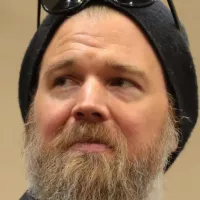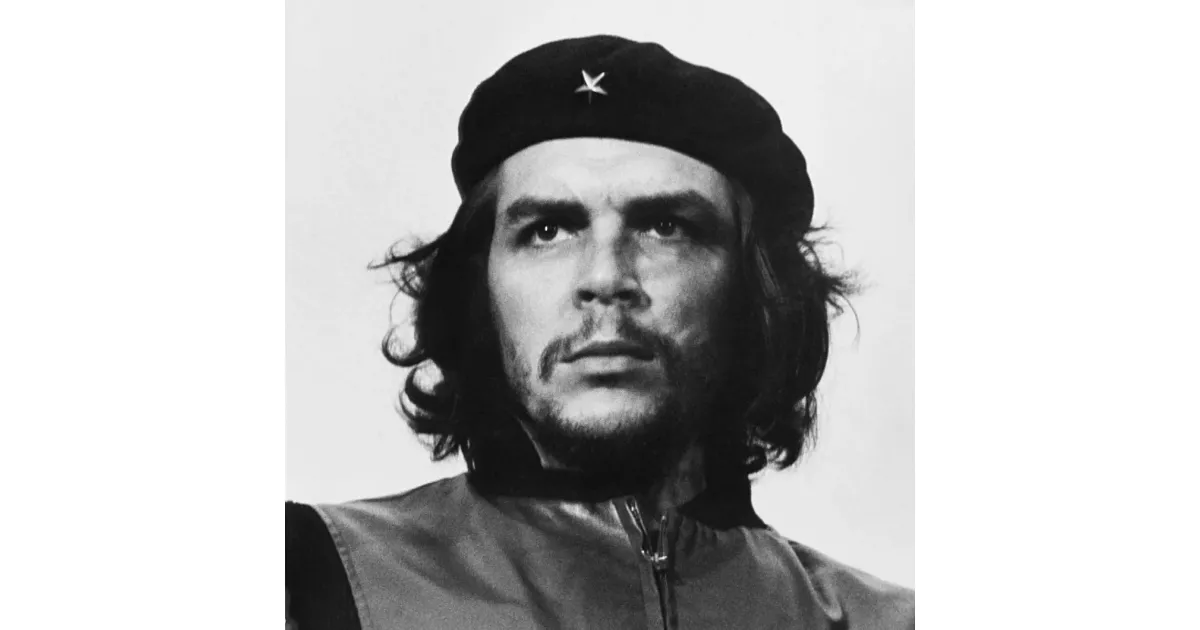Life is full of challenges, and Che Guevara faced many. Discover key struggles and how they were overcome.
Ernesto "Che" Guevara was a prominent Argentine Marxist revolutionary, physician, and guerrilla leader. He played a key role in the Cuban Revolution and became a significant figure in the Cuban government. Beyond his involvement in Cuba, Guevara sought to spread revolution to other countries, particularly in Africa and South America. His efforts often involved guerrilla warfare and promoting socialist ideologies. Despite his controversial legacy, Guevara remains a globally recognized symbol of rebellion and revolutionary ideals, often seen as a countercultural icon.
November 1956: Granma sets out for Cuba
In November 1956, Castro's revolutionary plan commenced with an assault on Cuba from Mexico via the Granma. Upon landing, Batista's military attacked, resulting in many deaths. During this confrontation, Che Guevara swapped his medical supplies for ammunition, marking a symbolic moment.
1957: Revolutionaries regroup in Sierra Maestra
In 1957, a small group of revolutionaries regrouped in the Sierra Maestra mountains, receiving support from Frank País's urban guerrilla network, the 26 July Movement, and local campesinos. An interview with Castro by Herbert Matthews in The New York Times presented a mythical image for Castro and the guerrillas. Guevara realized the importance of the media in their struggle. He also suffered from painful mosquito bites.
March 1958: US stops selling arms to Cuba
In March 1958, atrocities by Batista's forces led the United States to stop selling arms to the Cuban government.
September 1959: Guevara returns to Cuba, land seizures begin
In September 1959, upon Guevara's return to Cuba, it became clear that Fidel Castro's political influence had grown. The government initiated land seizures under the agrarian reform law, offering landowners low-interest "bonds" for compensation, which raised concerns in the United States. Wealthy cattlemen in Camagüey, along with disaffected rebel leader Huber Matos and the anti-communist wing of the 26 July Movement, opposed the land redistributions, denouncing "communist encroachment." Additionally, Dominican dictator Rafael Trujillo offered assistance to the "Anti-Communist Legion of the Caribbean," a multinational force plotting to overthrow Castro's regime during this time in September 1959.
1959: Critique of agrarian reform law
In a meeting with French economist René Dumont, Guevara blamed the inadequacy of the agrarian reform law enacted by the Cuban government in 1959, which turned large plantations into farm cooperatives or split up land amongst peasants.
July 1960: Guevara denounces U.S. economic aggression
In July 1960, after the United States reduced imports of Cuban sugar, Guevara addressed over 100,000 workers at a rally in front of the Presidential Palace, denouncing the "economic aggression" of the United States. Time Magazine reporters described Guevara as guiding Cuba with "icy calculation, vast competence, high intelligence, and a perceptive sense of humor" around this time.
April 1961: Bay of Pigs Invasion
On 17 April 1961, 1,400 US-trained Cuban exiles invaded Cuba during the Bay of Pigs Invasion. Guevara did not play a key role in the fighting, as one day before the invasion a warship carrying Marines faked an invasion and drew forces commanded by Guevara to that region. It was also during this deployment that he suffered a bullet grazing to the cheek when his pistol fell out of its holster and accidentally discharged.
March 1962: Guevara admits failure of economic plan
In March 1962, Guevara admitted in a speech that the economic plan was a failure, specifically stating it was "an absurd plan, disconnected from reality, with absurd goals and imaginary resources."
October 1962: Cuban Missile Crisis
In October 1962, the Cuban Missile Crisis occurred. Guevara played a key role in bringing Soviet nuclear missiles to Cuba, bringing the world to the brink of nuclear war.
1963: Sugar production decline and Guevara's resignation
In 1963, Cuba's sugar harvest brought in 3.8 million tons, the lowest in over twenty years. General food production was also down per capita by 40% for the next three years. Castro began to emphasize sugar production in economic planning, and Guevara resigned from his position as head of the Ministry of Industries.
1963: Guevara publishes Against bureaucratism
In February 1963, Guevara published the essay Against bureaucratism, which discussed the "guerrillaism" of the Cuban leadership, the need for bureaucratization, and the new need to de-bureaucratize to end idleness in production.
1964: Guevara publishes The Cuban Economy: Its Past, and Its Present Importance
In 1964, Guevara published an article, titled The Cuban Economy: Its Past, and Its Present Importance, which analyzed the recent failure of Guevara's economic plans where he states that he committed "two principle errors": the diversification of agriculture, and dispersing resources evenly for various agricultural sectors.
April 1965: Guevara arrives in Congo to support the Simba movement
On April 24, 1965, Guevara, under the alias Ramón Benítez, arrived in Congo with a Cuban expedition to support the leftist Simba movement. They collaborated with Laurent-Désiré Kabila. Guevara stated that Patrice Lumumba’s murder should be a lesson for all.
June 1965: Castro addresses speculation regarding Guevara's fate
On June 16, 1965, amidst international speculation about Guevara's disappearance, Castro stated that the people would be informed when Guevara himself wished to let them know.
September 1965: ANC launches Operation South
On 27 September 1965, the ANC and its allies launched Operation South to destroy Kabila's forces. With the support of Che and his Cubans, the Simbas put up substantial resistance.
November 1965: Guevara leaves Congo
On November 20, 1965, suffering from dysentery and acute asthma, and disheartened after seven months of defeats and inactivity, Guevara left Congo with the Cuban survivors. Guevara concluded that he left Congo because: "The human element failed. There is no will to fight. The [rebel] leaders are corrupt. In a word ... there was nothing to do."
1965: Yugoslav Journal Observes Incomplete Cuban Factories
As early as 1965, the Yugoslav communist journal Borba observed the many half-completed or empty factories in Cuba, a legacy of Che Guevara's short tenure as Minister of Industries.
November 1966: First Diary Entry Documenting Guerrilla Campaign
In November 1966, Che Guevara's 30,000-word, hand-written diary documented the events of the guerrilla campaign in Bolivia, with the first entry on November 7, 1966, shortly after his arrival at the farm in Ñancahuazú.
April 1967: Régis Debray Captured with Guevara in Bolivia
In April 1967, French intellectual Régis Debray was captured while with Che Guevara in Bolivia. Debray described a destitute situation where Guevara's men suffered malnutrition, lack of water, absence of shoes, and only possessed six blankets for 22 men.
October 1967: Last Diary Entry Documenting Guerrilla Campaign
In October 1967, Che Guevara's last diary entry was dated October 7, 1967, the day before his capture. The diary documented events of the guerrilla campaign in Bolivia, and it described Guevara's increasing illness and reliance on offensives to obtain medicine.
October 1967: Guevara is wounded and captured
On the morning of October 8, 1967, Bolivian Special Forces encircled Guevara's guerrilla encampment in the Yuro ravine after receiving information from an informant. A battle ensued, and Guevara was wounded and taken prisoner while leading a detachment. Upon capture, he reportedly shouted, "Do not shoot! I am Che Guevara and I am worth more to you alive than dead."
August 1968: Debray Interview on Guevara's Capture
In August 1968, Régis Debray, captured with Guevara in April 1967, gave an interview from prison. Debray spoke on the circumstances of Guevara's capture and recounted Guevara being "optimistic about the future of Latin America" despite the futile situation, and remarked that Guevara was "resigned to die in the knowledge that his death would be a sort of renaissance".
Mentioned in this timeline

John F Kennedy JFK was the th U S President...
Sudan officially the Republic of the Sudan is a country...
The Union of Soviet Socialist Republics USSR existed from to...
India officially the Republic of India is a South Asian...
Barbie is a fashion doll created by Ruth Handler and...
Morocco officially the Kingdom of Morocco is a North African...
Trending
15 minutes ago Lesotho: Frontliners help family overcome poverty; South Africa sees tourism boom in 2026.

15 minutes ago Sara Eisen on The View: Tense Moments and Financial Expertise Displayed.

1 hour ago Ryan Hurst's Kratos Revealed in Prime Video's 'God of War' Series: Cast Updates

1 hour ago Cowboys to Franchise Tag George Pickens for $28 Million: A Bold Move

1 hour ago Rublev dominates Rinderknech, secures Dubai 2026 SFs spot; stats rival Djokovic, Federer.
16 minutes ago Samsung Galaxy S26 Series Unveiled: Intuitive AI Phone with Snapdragon 8 Elite Gen 5.
Popular

Jesse Jackson is an American civil rights activist politician and...

Barack Obama the th U S President - was the...

Susan Rice is an American diplomat and public official prominent...

XXXTentacion born Jahseh Dwayne Ricardo Onfroy was a controversial yet...

Michael Joseph Jackson the King of Pop was a highly...

Kashyap Pramod Patel is an American lawyer who became the...
